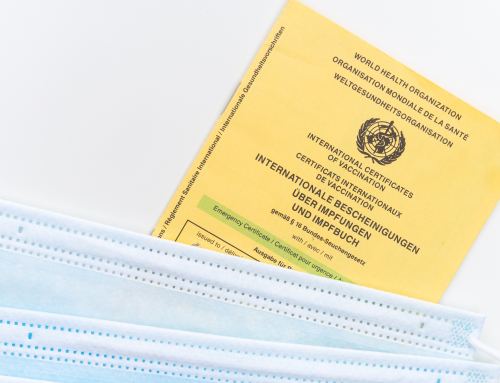The Impact of AI on Health Content Generation: A Looming Crisis for Health Websites
The rapid advancements in artificial intelligence (AI) have revolutionized how we access information. Google, the world’s most popular search engine, is at the forefront of this transformation. The tech giant proposes a new search paradigm where AI directly answers user queries, bypassing traditional search results that link to content-generating websites. This shift has significant implications for health content creators, who have long relied on search engines to drive traffic and generate revenue.
The Current State of Health Content on the Internet
Today, when individuals search for health-related information on Google, they are presented with a list of websites that answer their questions. These websites, created by health content writers and professionals, often include detailed articles, studies, and expert opinions. Users click on these links and visit the websites, and in doing so, they generate ad revenue or other forms of income for the content creators. This model has supported the livelihoods of countless writers and health professionals and ensured a rich diversity of high-quality health information on the web.
Google’s AI-Driven Search: A Game Changer
Google’s proposed AI-driven search will significantly alter this model. Instead of presenting users with a list of websites, AI will generate answers directly on the search results page. While this may provide quick and convenient answers, it also means that users are less likely to click through to the original sources of information. Even more concerning is the lack of attribution or acknowledgment for the content creators whose work is used to generate these AI responses.
This change represents a substantial loss of potential revenue for health content writers. Previously, a well-written and informative article could attract thousands of visitors through Google searches, resulting in significant ad revenue or subscriptions. With AI offering answers directly, this traffic – and the associated revenue – could diminish dramatically.
The Fairness Dilemma: Attribution and Profit Sharing
The lack of attribution in AI-generated search results has sparked a debate about fairness. Many believe that content creators should receive credit for their work, especially when it’s used to generate AI responses. Some advocate for systems that attribute AI-generated content to its original sources or even share profits with the content creators. However, such profit-sharing schemes are still in their infancy and have yet to be widely proposed or developed. This leaves health content writers in a precarious position, potentially facing months or even years of reduced income while these issues are resolved.
The Impact on Health Content Quality
Beyond the financial implications, serious concerns exist about the quality and reliability of health information online. AI, while impressive, is not infallible. It generates responses based on existing data but can also produce inaccurate or misleading information. For instance, an AI-generated article on a vaccine against malaria might sound credible and scientific – except that no such vaccine exists. This example highlights the danger of relying solely on AI for health information without the checks and balances provided by human expertise and the ability to verify sources.
As AI-driven search becomes more prevalent, we may see a decline in the quality of health content on the internet. If health content creators are no longer incentivized to produce high-quality articles due to reduced traffic and revenue, health information’s overall richness and diversity could suffer. This, in turn, could lead to a less informed public, with potentially serious consequences for public health.
The Potential for Competition: A New Era of Search Engines?
In response to Google’s AI-based search, there may be an opportunity for competition to emerge, offering alternative search engines that prioritize non-AI-based answers, especially for health-related queries. These alternative platforms could focus on providing direct access to expert-authored articles, research studies, and other reliable sources of information. By doing so, they could attract users who value transparency and the ability to verify the credibility of the information they receive.
This potential competition could counterbalance Google’s AI-driven approach, ensuring that health content creators continue to have a platform where their work is valued and attributed. Additionally, it could foster innovation in how health information is accessed and shared, encouraging the development of search engines that strike a better balance between convenience and content creator rights.
Conclusion: A Call for Fair and Sustainable Solutions
The shift towards AI-generated search results is inevitable, but it must be handled carefully to ensure that content creators are not unfairly disadvantaged. Google and other tech companies must consider the long-term impact on the internet’s content ecosystem, particularly in areas as critical as health information. Attribution, profit-sharing, and systems to ensure the accuracy and reliability of AI-generated content are essential steps in this process.
Until these systems are in place, health content creators will face significant challenges. The future of health information on the internet depends on finding a balance between the convenience of AI and the need to support and incentivize those who produce high-quality, reliable content. Without this balance, we risk undermining the very foundation of trustworthy health information online.
In the meantime, the emergence of alternative search engines that focus on non-AI-based answers could provide a much-needed lifeline for health content creators. These platforms could help preserve the diversity and quality of health information on the web while ensuring that those who create valuable content are fairly rewarded for their efforts.



Leave A Comment